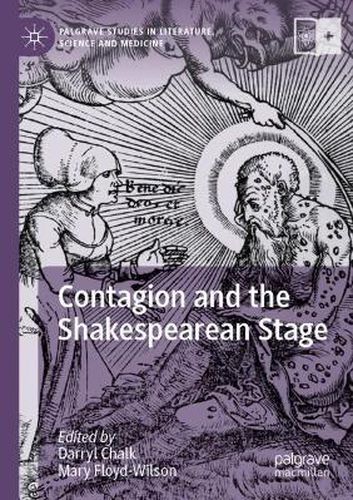Readings Newsletter
Become a Readings Member to make your shopping experience even easier.
Sign in or sign up for free!
You’re not far away from qualifying for FREE standard shipping within Australia
You’ve qualified for FREE standard shipping within Australia
The cart is loading…






This title is printed to order. This book may have been self-published. If so, we cannot guarantee the quality of the content. In the main most books will have gone through the editing process however some may not. We therefore suggest that you be aware of this before ordering this book. If in doubt check either the author or publisher’s details as we are unable to accept any returns unless they are faulty. Please contact us if you have any questions.
This collection of essays considers what constituted contagion in the minds of early moderns in the absence of modern germ theory. In a wide range of essays focused on early modern drama and the culture of theater, contributors explore how ideas of contagion not only inform representations of the senses (such as smell and touch) and emotions (such as disgust, pity, and shame) but also shape how people understood belief, narrative, and political agency. Epidemic thinking was not limited to medical inquiry or the narrow study of a particular disease. Shakespeare, Thomas Middleton, Ben Jonson, Thomas Dekker and other early modern writers understood that someone might be infected or transformed by the presence of others, through various kinds of exchange, or if exposed to certain ideas, practices, or environmental conditions. The discourse and concept of contagion provides a lens for understanding early modern theatrical performance, dramatic plots, and theater-going itself.
$9.00 standard shipping within Australia
FREE standard shipping within Australia for orders over $100.00
Express & International shipping calculated at checkout
This title is printed to order. This book may have been self-published. If so, we cannot guarantee the quality of the content. In the main most books will have gone through the editing process however some may not. We therefore suggest that you be aware of this before ordering this book. If in doubt check either the author or publisher’s details as we are unable to accept any returns unless they are faulty. Please contact us if you have any questions.
This collection of essays considers what constituted contagion in the minds of early moderns in the absence of modern germ theory. In a wide range of essays focused on early modern drama and the culture of theater, contributors explore how ideas of contagion not only inform representations of the senses (such as smell and touch) and emotions (such as disgust, pity, and shame) but also shape how people understood belief, narrative, and political agency. Epidemic thinking was not limited to medical inquiry or the narrow study of a particular disease. Shakespeare, Thomas Middleton, Ben Jonson, Thomas Dekker and other early modern writers understood that someone might be infected or transformed by the presence of others, through various kinds of exchange, or if exposed to certain ideas, practices, or environmental conditions. The discourse and concept of contagion provides a lens for understanding early modern theatrical performance, dramatic plots, and theater-going itself.